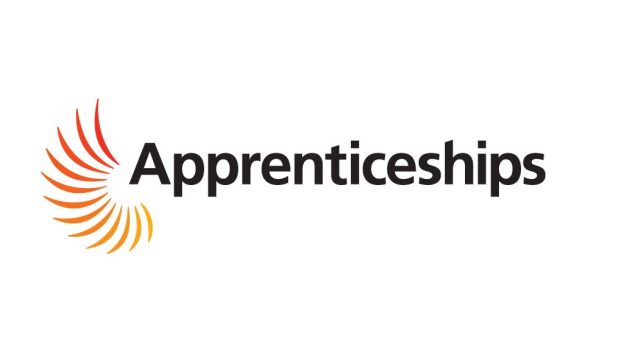In 2015, the government announced that as part of their efforts to improve apprenticeship training, all apprenticeships would be moving from frameworks onto standards as of 1st August 2020. To meet this goal, the Education Skills Funding Agency (ESFA) will be ending enrolment on all framework apprenticeships from 31st July 2020.
As we move closer towards this date, apprentices and employers may have questions about how the switchover may affect them. Here, we’ve covered the main points you should be aware of and provided some more information about what apprenticeship standards are all about:
Why is this happening?
The switch from frameworks to standards is part of a wider government response to employer demand for a training solution that is current, relevant and fit for purpose. The purpose of the behind these changes is to make apprenticeships more employer-led and improve on-the-job learning.
How will this change affect current apprenticeships at The College of Animal Welfare and CAW Business School?
The switch over from frameworks to standards means that from 1st August 2020, you will no longer be able to enrol on the following apprenticeship programmes we offer:
- Advanced Apprenticeship in Work-based Animal Care
- Intermediate Apprenticeship for Nursing Assistants in a Veterinary Environment (VCA)
- Advanced Apprenticeship in Customer Service
- Intermediate Apprenticeship in Business Administration
- Higher Apprenticeship in Business Administration
- Intermediate Apprenticeship in Medical Administration
If you or a member of your staff have already started on one of these apprenticeship frameworks, there’s no need to panic. Any framework apprenticeships started before the 1st August will still be eligible for completion and the qualification will still be valid, even if you do not finish until after the cut-off point.
If you or a member of your staff were planning on enrolling onto one of these apprenticeship frameworks, we would encourage you to have a look at the apprenticeship standards we offer:
- Animal Care and Welfare Assistant (Level 2 Apprenticeship)
- Veterinary Care Support: Level 2 Apprenticeship (Animal Care and Welfare Assistant)
- VetSkill Level 3 Diploma in Veterinary Nursing (Apprenticeship) – Companion Animal Pathway
- Level 3 Diploma in Equine Veterinary Nursing (Apprenticeship)
- Equine Groom: Level 2 Apprenticeship
- Senior Equine Groom: Level 3 Apprenticeship
- Customer Service Practitioner: Level 2 Apprenticeship
- Business Administrator: Level 2 Apprenticeship
- Business Administrator (Medical Pathway): Level 2 Apprenticeship
- AAT Level 2 Accounts/Finance Assistant Apprenticeship
- AAT Level 3 Assistant Accountant Apprenticeship
- Professional Accounting/Tax Technician (Level 4 Apprenticeship)
- Team Leader/Supervisor (Level 3 Apprenticeship)
- Operations/Departmental Manager (Level 5 Apprenticeship)
Make sure to keep an eye on our blog or follow us on our social media for updates about new standards we may offer as they become available:
[ss_social_follow networks=”facebook;twitter;instagram;pinterest” columns=”4″]
What do I need to know about apprenticeship standards?
They are designed by employers, for employers
Standards have been developed in conjunction with groups of employers known as “trailblazers”. They can be tailored to a specific job-role and contain a list of all the skills, knowledge and behaviours needed for learners to be job-ready upon completion.
Standards offer lots of choice for students and employers
Every job which can be entered via an apprenticeship will have its own standard (there were around 250 apprenticeship frameworks under the old system, compared with over 600 standards.) What’s more – standards have been designed for jobs which require differing levels of skills and knowledge.
Robust assessment methods are embedded into standards
In order to finish their apprenticeship, learners on standards will need to complete an End-Point Assessment (EPA) to show they can perform all the responsibilities their job role demands and they have gained the skills, knowledge and behaviours outlined in the standard.
Apprentices must spend 20% of their time training “off-the-job”
All apprentices must spend 20% of their working time allocated to ‘off-the-job-training’. This can include time being allocated to work on activities such as reflective logs or portfolio tasks, or perhaps undertaking a research project or reviewing working processes. There are many ways in which you can use this allocation to the advantage of both the apprentice and the business. Download our Off-the-Job Training Guidance for Apprentices
Employers can benefit from reduced fees
The government have agreed to fund 95%* of the apprenticeship fees for small employers (those with an annual payroll of less than £3 million). Additionally, if you have less than 50 employees and your apprentice is under 19 years of age there are no fees to payand you’ll get a £1,000 grant If you are a large employer (with an annual payroll bill of more than £3 million) the apprenticeship fees are payable via the apprenticeship levy money in your digital account. Please visit our individual course pages for further information on fees.
Further Information:
If you have any further queries about the switch over from an employer or learner perspective, please don’t hesitate to get in touch with us on 01480 422060 or admin@caw.ac.uk.
*Updated inline with the funding rate change on 1 April 2019

